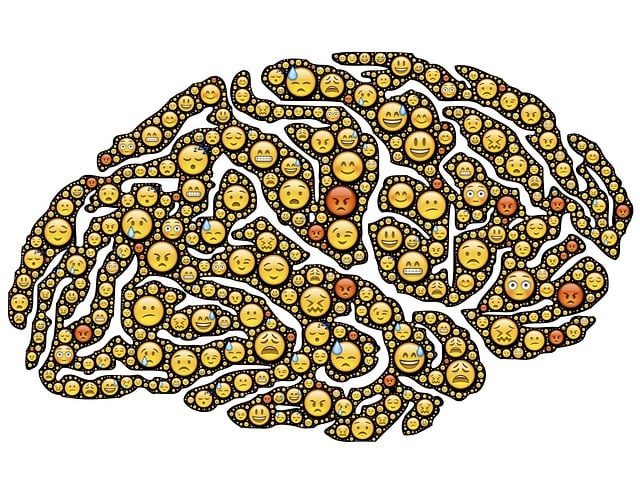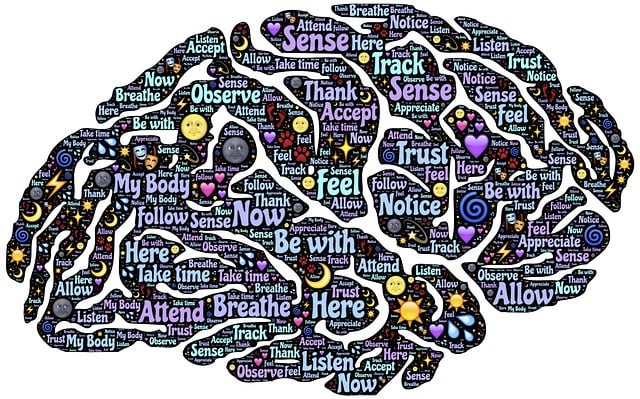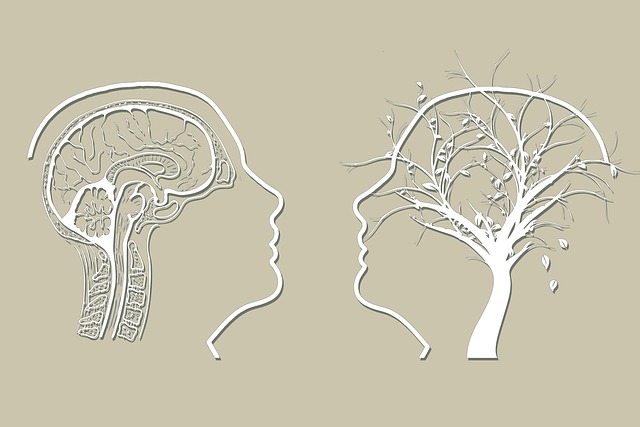Lakewood Somatic Experiencing (SE) Therapy is an innovative approach that builds resilience through its RFM model—Resources, Features, and Moments. This method helps individuals cope with stress and trauma by identifying internal resources, recognizing life's features, and reflecting on moments of strength. SE techniques, combining mindfulness, movement, and emotional exploration, empower clients to process emotions, regulate physiological reactions, and enhance emotional intelligence. The ultimate goal is to foster a sense of control, adaptability, and resilience in the face of adversity, with cultural sensitivity ensuring tailored support for diverse populations.
Discover the power of RFM (Resourceful Self-Management) in building resilience with this comprehensive guide. Learn how Lakewood Somatic Experiencing Therapy offers a unique approach to enhance emotional well-being and cope with stress. Explore practical exercises tailored to incorporate RFM into daily life, fostering long-lasting resilience. Understand why this method is gaining prominence in mental health practices, empowering individuals to navigate challenges with greater equanimity and strength.
- Understanding RFM and Its Role in Resilience Building
- The Lakewood Somatic Experiencing Therapy Approach
- Practical Exercises to Enhance Resilience Using RFM
- Integrating RFM into Daily Life for Long-Lasting Resilience
Understanding RFM and Its Role in Resilience Building

Resilience is a crucial component of mental and emotional well-being, especially in today’s fast-paced world. Lakewood Somatic Experiencing Therapy (SE) offers an innovative approach to fostering resilience through techniques designed to enhance an individual’s ability to cope with stress and trauma. RFM, or Resources, Features, and Moments, is a core concept within SE that plays a pivotal role in building resilience. This method encourages individuals to identify and engage with their internal resources, recognize significant features in their lives, and reflect on moments of strength or recovery from challenging situations.
By understanding RFM, healthcare providers can implement effective burnout prevention strategies for themselves and their patients. Stress reduction methods within SE therapy help individuals manage and reduce stress levels, a key factor in building resilience. This, in turn, can prevent burnout, which is particularly prevalent among healthcare professionals. Through these exercises, folks learn to navigate life’s challenges more effectively, ensuring they can bounce back from adversity, fostering a sense of control and empowerment.
The Lakewood Somatic Experiencing Therapy Approach

The Lakewood Somatic Experiencing Therapy (LET) approach is a unique and powerful method designed to help individuals heal from trauma and build resilience. This therapy focuses on the connection between the mind, body, and emotions, aiming to restore balance and promote a sense of safety within oneself. By combining elements of mindfulness, movement, and emotional exploration, LET empowers clients to develop a deeper understanding of their bodily sensations and responses, leading to improved emotional intelligence and confidence boosting abilities.
Through various exercises tailored to individual needs, this therapeutic approach enables participants to process and release trapped emotions associated with past traumatic events. As a result, individuals learn to regulate their physiological reactions, fostering better self-care routine development for better mental health. The ultimate goal is to help clients regain control over their lives, enhance their coping mechanisms, and cultivate a profound sense of resilience in the face of adversity.
Practical Exercises to Enhance Resilience Using RFM

Resilience is a vital component of well-being, and incorporating practical exercises like those derived from Somatic Experiencing Therapy (SET) can significantly enhance an individual’s ability to cope with stress and trauma. At Lakewood Somatic Experiencing Therapy, we focus on these emotional healing processes to help clients rebuild their resilience. The RFM model—Resources, Factors of Strength, and Misawarnings—is a powerful tool in this regard.
By identifying available resources within themselves and their environment, individuals can cultivate a sense of empowerment. Recognizing personal strengths and coping mechanisms is another key aspect. Through SET techniques, clients learn to process traumatic memories and misperceptions, thereby reducing the impact of adverse experiences. This approach, coupled with cultural sensitivity in mental healthcare practice, aims to break down barriers associated with mental illness stigma reduction efforts, fostering a more inclusive and supportive healing environment.
Integrating RFM into Daily Life for Long-Lasting Resilience

Integrating RFM (Resilience, Flexibility, and Mastery) into daily life is a key aspect of cultivating long-lasting resilience, as advocated by Lakewood Somatic Experiencing Therapy. This approach encourages individuals to embrace challenges not as barriers but as opportunities for growth. By consistently practicing RFM, one can develop a deeper sense of control over their emotional responses, enhancing their ability to navigate life’s ups and downs with grace and adaptability.
This integration involves fostering mental wellness coaching programs that focus on self-awareness and personal development. Through these programs, individuals learn effective coping mechanisms, build resilience against stress and trauma, and actively contribute to mental illness stigma reduction efforts. Additionally, cultural sensitivity in mental healthcare practice plays a crucial role, ensuring that RFM approaches are tailored to meet the unique needs of diverse populations, thereby fostering inclusive and supportive environments for all.
Resilience is a dynamic process, and the RFM (Resource, Focus, and Meaning) model offers a powerful framework for navigating life’s challenges. By integrating the Lakewood Somatic Experiencing Therapy approach and practical exercises into daily routines, individuals can enhance their resilience and cultivate a deeper sense of well-being. This article has explored the significance of RFM in building mental fortitude, providing actionable strategies to empower folks in managing stress and adversity. Embracing these techniques can lead to profound personal growth and improved coping mechanisms, ultimately fostering a more resilient mindset.










